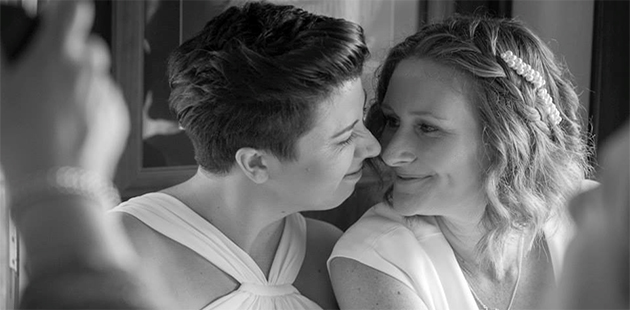 With the future of marriage equality in Australia uncertain, same-sex couples in Victoria will now benefit from a raft of changes that improve recognition of their relationships.
With the future of marriage equality in Australia uncertain, same-sex couples in Victoria will now benefit from a raft of changes that improve recognition of their relationships.
Rights groups welcome the changes, which mean couples married overseas or with only one partner resident in Victoria will now be recognised in Victoria. Previously both partners were required to reside in the state for 12 months. Death certificates will now also acknowledge de facto relationships and same sex overseas marriages and civil unions.
“These improvements will make an immediate practical difference to the lives of LGBTI people in Victoria and give increasing numbers of same-sex couples married overseas the comfort and security of knowing they are immediately recognised in the eyes of the law,” said Anna Brown, Director of Advocacy at the Human Rights Law Centre.
Improvements to Relationships Register
Reforms to Victoria’s relationship registration scheme, passed through parliament earlier this year, remove the requirement that both of the couple live together in Victoria for 12 months and automatically recognise overseas marriages or civil unions as registered relationships under Victorian law.
“The practical reality for some couples is that they may not be able to physically live together for extended periods of time due to work or family commitments,” said Sean Mulcahy, Co-Convener of the Victorian Gay & Lesbian Rights Lobby. “These reforms will provide formal recognition on the basis of a shared commitment to a life together without any extra red tape.”
Tarryn Billings and Eileene Shapland travelled to New Zealand to marry in 2015 and now are expecting their first child. “These changes are an exciting step in the right direction in terms of providing the security that comes with legal recognition of our marriage,” said Billings and Shapland. “On a more personal level, the changes mean that the commitment we made to each other is acknowledged in our own country and we are bringing our son into a world that is a step closer to formally recognising his family as equal.”
Improvements to death certificates
The reforms also ensure same-sex partners aren’t rendered invisible at the worst of times – when their beloved partner or spouse passes away. Changes to death certificate regulations have also come into effect that recognise same sex couples in de facto relationships or married overseas.
This issue came to light in 2012 when gay rights advocate, Dennis Altman, was not recognised on the death certificate of his partner, Anthony Smith, despite living together as a couple for 22 years. “Having to list Anthony as single on the death certificate was gut-wrenching; this is a further step to acknowledging that we form lasting and committed relationships whether or not the church and state gives us their blessing,” said Altman.
Calls for reform intensified earlier this year, when Marco Bulmer-Rizzi was told that his husband David’s death certificate would state that he was “never married”. David died tragically during their honeymoon in South Australia following their UK marriage.
These changes – which benefit all de facto couples – mean that relationships recognised overseas are legally acknowledged on a loved one’s death certificate in Victoria. A Victorian death certificate is generally issued when a person dies in Victoria, usually lives in Victoria but dies overseas, dies while travelling to Victoria or dies overseas but leaves property in Victoria.
Further improvements to come
The Government is still working with Births Deaths & Marriages to finalise additional services to accompany relationship registration, including ceremonies conducted at the registry office. This follows an amendment moved by the Greens during the passage of the Relationships Amendment Act 2016 (Vic). These services are due to commence in October 2016.
Minister for Equality, Martin Foley has also asked the LGBTI Taskforce and its Justice Working Group to examine proposals for further reform of the Victorian Relationships Act in order to strengthen the rights of same-sex couples in this term of government. Community groups hope this will lead to the strengthening of same-sex relationships by introducing civil unions, which are currently available in Queensland, the ACT and the UK.
“The VGLRL calls for Victoria to recognise ‘civil unions’ rather than ‘registered relationships’. Civil unions are more strongly associated with marriage and would be a further step towards treating all loving couples equally under the law,” said Mr Mulcahy. “Even if marriage equality is passed in Australia, some couples will still wish to use alternative civil union and relationship recognition schemes to have their shared life together legally recognised.”
For more information, visit: www.justice.vic.gov.au for details.
Image: courtesy of VGLRL
